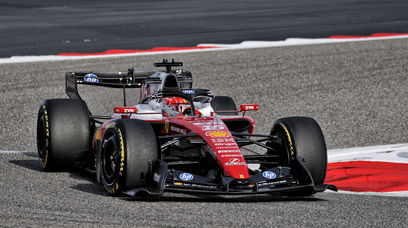Much has been made about the challenges of the FIA’s recently announced Expression of Interest (EoI) process for aspirant teams , but in real terms it should be a painless administrative process driven by simple business principles: Plan right and execute right, and all will be all right. The bottom line is that the process involves a comprehensive feasibility study based on the Four Ms of management: Money (capital budget), Manpower (staff), Machinery (facility) and Market (sponsors). These parameters are fundamentally no different to those required by start-ups in any sphere when seeking angel investors or capital loans. In banker-speak it is called “due diligence” and are standard procedure. By the same token, much has been made of the $200m ‘entry fee’ required from any prospective entrants. This is, though, a misnomer: it is an arbitrary ‘anti-dilution fee’ to be paid by any new team(s) and to be shared equally amongst existing teams to compensate them for any dilution of the prize ‘pot’, which would be divided not by 10, but 11, 12 or even 13 teams should there be newcomers. It follows, then, that this fee is a commercial stipulation not a sporting requirement and should thus form no part of the FIA’s new team entry process, as per EU decree.
Some context: In 2001 the FIA’s commercial rights deal with Formula One Administration Ltd (FOA, trading as F1) was approved by the EU Commission subject to a ‘hard’ split between sporting and commercial activities; thus, the EU decreed that the FIA step back from F1’s money matters and concentrate on regulatory issues. This split is inviolate and, amongst other clauses in the decree (C169/5, dated 13 June 2001), demands that the “FIA provide reasons for refusing any entry to an international event” while stipulating that FOA obtains “the teams’ agreement and consent to film, broadcast and exploit footage containing representations or images of teams and drivers.” This clause is based on legal principles governing ownership of image rights. Crucially, these points are central to the new team entry process: The FIA may not reject licence applications without providing solid sporting reasons, and teams own their image rights and these need to be acquired by FOA. Therefore, overhead grid shots require the agreement of all teams prior to broadcast; ditto driver ‘school’ photos. That is what FOA shells out for (as prize monies), based upon team performances. Thus, there are three steps to the FIA procedure: The FIA’s new team process; negotiations with FOA for a commercial deal (known as the Concorde Agreement); and actual lodging of an entry with the FIA ahead of the first season for the new team. Inherent in this step is that newcomers commit to all FIA regulations once the entry is accepted – be these sporting, technical or financial (budget cap), where applicable of course. Little known is that there are in fact two 2021-25 Concorde Agreements - one with the FIA whereby teams commit to governance processes; the other with FOA - and it is last-named that prescribes the $200m fee insisted upon by major teams (some say Mercedes was the instigator) in return for a share of the prize fund which is disbursed according to a matrix depending upon the previous year’s results. It follows that prize monies are earned only after the first year – and only if a commercial deal is in place. Now consider that the Concordes expires end-2025 and any new team is unlikely to be ready before the start of 2025 - two years hence - and therefore the question is: Why pay $200m for a deal that is unlikely to return half that in prize monies, for one year only? The 2026-on Concorde is unlikely to contain this daft fee.
Given the separation between the two entities, the FIA could not refuse a team that qualifies for an entry on all sporting, technical and budgetary fronts, as Andretti no doubt would. On the flipside, at best FOA could withhold prize monies and travel subsidies from a team that declines to sign up but could not then broadcast its images. See the mess looming for F1TV, for a fee FOA does not benefit from in the first place? This act of rebellion by a prospective team would open a massive can of worms – one of FOA and the teams own making, for the clause always was utterly idiotic and selfish (and arguably illegal on monopolistic grounds): Collectively the teams would need to waive $200m ($20m each), or risk having no global coverage as footage containing images of the new team could result in robust legal action backed up by EU decree. The solution is obvious: Follow C169/5 to the letter and enter without a Concorde deal unless the $200m fee is waived. The prize ‘pot’ dilution argument is in any event disingenuous: taken as a whole the two 2021-25 Concorde Agreements combine to save the teams way more than a measly $20m each given that the covenants were the first in F1 history to stipulate a budget cap, which in turn boosts team profits. Look no further than Companies House for proof of this: Mercedes AMG F1 Team reported a year-on-year drop in income from £324m (2020) to £297m (2021) yet recorded a 2021 gross profit of £86m versus £30m (2020) – a 250 percent increase and a lot more than the team’s share of any fee! This trend holds true up and down the paddock, so clearly existing teams were being both selfish and greedy and FOA acquiesced. The bottom line is that F1 could handle up to 26 cars – the regulations make provision for that number – and therefore the EoI process is long overdue, with any decision being within the gift of the FIA, and not FOA or the teams. That much was made clear by the fact that FIA announced the process independently, without input or even comment from FOA.
Most read







